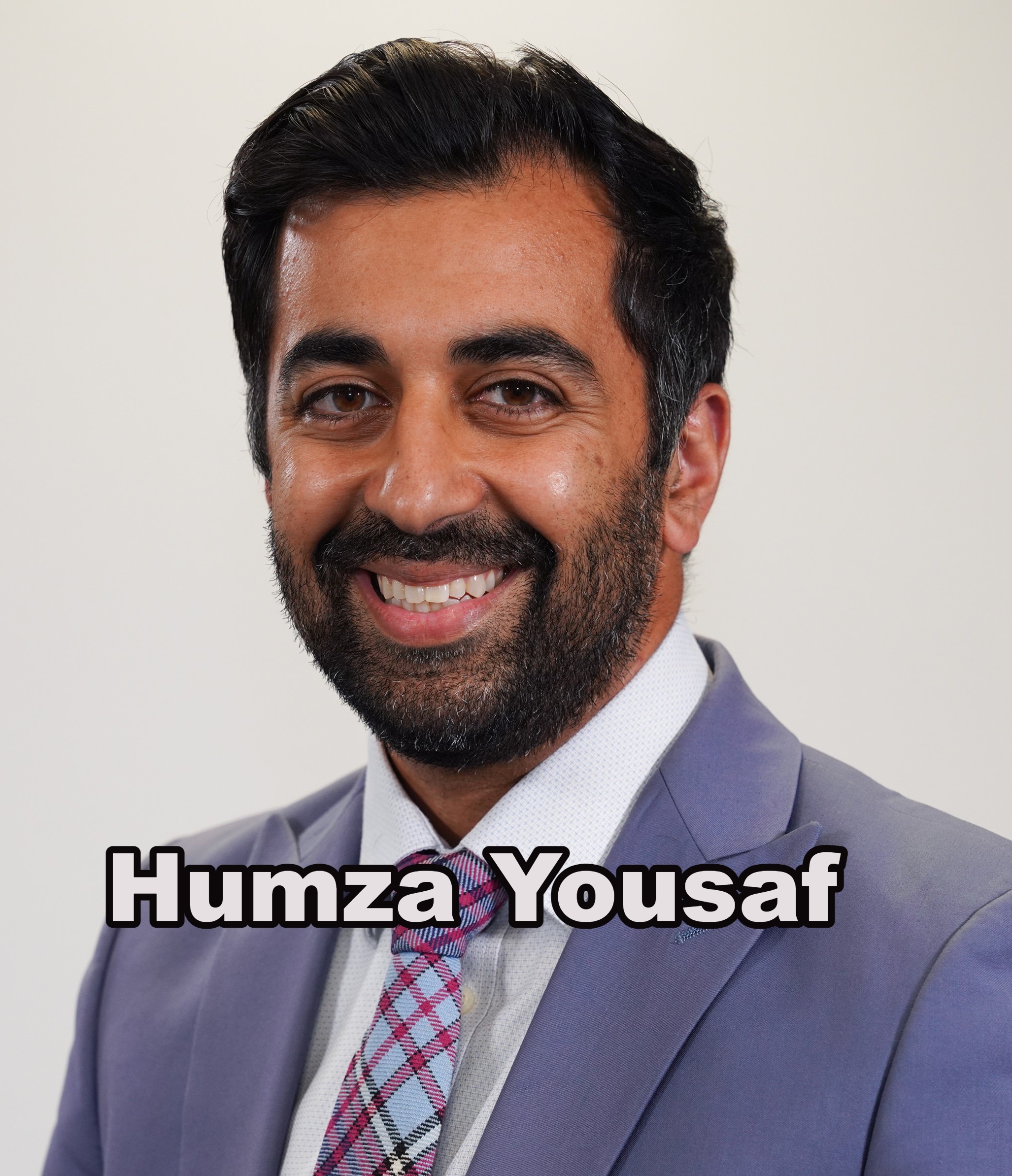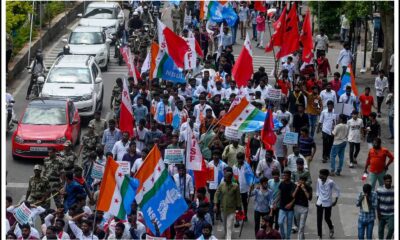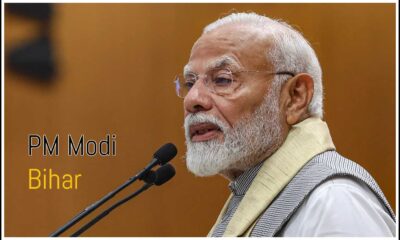Politics
Humza Yousaf is the first Muslim leader of the Scottish government
Published
1 year agoon

Humza Yousaf, 37, won the Scottish National Party (SNP)’s top position by a razor-thin margin and has vowed to revive the country’s flagging independence movement.
London: Humza Yousaf, the youngest first minister in a devolved country and the first Muslim head of a government in western Europe, was confirmed by Scotland’s parliament on Tuesday to succeed Nicola Sturgeon in that position.
Humza Yousaf, 37, won the Scottish National Party (SNP)’s top position by a razor-thin margin and has vowed to revive the country’s flagging independence movement.In the early afternoon vote on Tuesday, he then received the support of the majority of lawmakers to be named the new first minister. He will be formally sworn in at a ceremony on Wednesday.
Read Also:- Fans furious over Ajinkya Rahane’s exclusion from the central contract, said – BCCI discriminates.
Humza Yousaf acknowledged that replacing Sturgeon would require him to “fill some very big shoes,” but he promised to “continue to ensure that Scotland is a positive, progressive voice on the global stage.”Referring to the UK government reforms that gave Scotland a slew of domestic policy powers in 1999, he said, “I will stand up unapologetically for this parliament and against any attempts to undermine devolution.”
The new SNP leader continued, “I will work every hour of every day to harness the potential of Scotland and every single person.”
‘Welcoming
Sturgeon left the first minister’s residence in Edinburgh for the final time just hours before the vote and handed King Charles III a formal letter of resignation.Following formal approval from the king, whom Humza Yousaf wants to depose in favour of an elected head of state for Scotland, he will be sworn into the position on Wednesday.
SNP leaders were pleased that Scotland had chosen a Muslim as its leader, making it the first democracy in western Europe to do so.According to party leader Stephen Flynn in the UK parliament, “I think what it says about the UK is that we are a welcoming group of nations, and Scotland in particular.”
He compared it to the Conservative government of UK Prime Minister Rishi Sunak, which is attempting to “outlaw asylum seekers” through new legislation in an effort to stop boatloads of migrants from crossing the Channel.Following Sturgeon’s unexpected resignation announcement last month after serving as prime minister for more than eight years, Scottish politics have undergone a seismic shift.It came after a turbulent time for her administration during which support for independence had decreased.
Recent polls indicate that 45% of Scots support leaving the UK, the same percentage as in the 2014 referendum, which London claims put an end to the issue for good.
Humza Yousaf promised to “kickstart” a civic movement to achieve independence for Scotland on Monday and to once more ask London to permit another vote as part of his promise to be “the generation that delivers independence for Scotland.”Sunak’s spokesperson, however, immediately advised reporters to pay attention to economic and political issues “that matter” to Scottish voters.
Criticism
Humza Yousaf , who served as health minister in Sturgeon’s previous cabinet, won the SNP election by a slim margin, receiving 52% of the members’ preferentially ranked votes.
He received criticism for his performance in a number of government positions.
Given that a UK general election is anticipated within the next 18 months, he now faces a greater challenge in gaining the support of the larger Scottish electorate.Just before he was named SNP leader, an Ipsos poll revealed that half of Scots believed their nation was heading in the wrong direction, while only a quarter believed it was.
Despite winning a string of elections under Sturgeon, the SNP is divided after a three-way leadership battle.The backlash against a new Scottish law allowing anyone over the age of 16 to change their gender without a medical diagnosis overshadowed Sturgeon’s final months in power.
During the debate, the UK government used an unprecedented veto to prevent the legislation from becoming law.Additionally, the UK Supreme Court ruled in 2017 that Sturgeon’s administration could not organise another vote on Scottish independence without London’s consent.
Rare criticism of Sturgeon’s leadership and strategies was brought on by the twin setbacks.
You may like
-


Opposition MPs Rahul Gandhi and PM Modi wave copies of the Constitution as he takes the oath
-


Supreme Court describes Delhi High Court’s stay decision as “unusual” and states that “judgment should have been” in regards to Arvind Kejriwal’s bail.
-


“Solver Gang” Is Accused of NEET Paper Leak; Police Arrest Ravi Atri, the Mastermind
-


PM Modi in Bihar, Nalanda University Inauguration Live: After showcasing the rebuilt campus, PM Modi declares that the rebuilding of Nalanda will mark the beginning of India’s golden age
-


“No PM in the past has uttered such hateful terms,” Manmohan Singh says in an attack on Narendra Modi
-


As he enters a not guilty plea, Brij Bhushan Sharan Singh’s sexual harassment case moves on to trial

